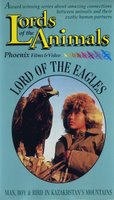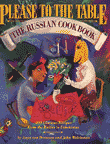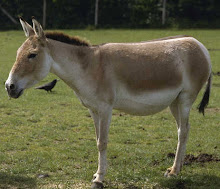
Every so often, when at the public library, I’ll type “Kazakhstan,” or 'Kazakh” in the catalog search box, just to see what shows up. A few months ago, this casual search turned up a real gem -- a documentary video called Lord of the Eagles, that I’d never heard of, or seen any reference to at all. This 26-minute film, originally released around 1991, is a strange and beautiful animal -- French-produced, filmed in Soviet Kazakhskaya, with Kazakh dialogue and French-accented English narration. Nonetheless, this documentary won a couple of nice awards when it was released in the US.
After keeping it for a while (and racking up some overdue fines), I watched this short film, which then became part of my more-or-less circumnavagatory tour around KZ.
This is a wonderful piece, documenting the Kazakh eagle hunters of the Tien Shan (the mountain range south of Alma-Ata/Almaty). Cultures around the world have traditions of training hunting birds, such as falcons and hawks. The Eastern Kazakhs (I assume the Greater Horde) paired with the great Golden Eagle, which, as a bird of prey, is capable of bringing down even foxes and wolves, whose pelts are the livelihood of the eagle masters.
Lord of the Eagles follows Alik, known as “the father of the birds” and his golden eagle partner Tengere, over their last season together. During this time, Alik teaches his young son Nurlan (who’s about ten years old) the secrets of the eagles -- their language, and the rhythms of a partnership. They capture a younger eagle, whom they name Keitan, and Nurlan becomes Keitan’s partner, learning from father to son, teaching and learning from from eagle to boy, how to work together as a symbiotic team. The eagle is symbolic of, as Alik says, “the beauty and the cruelty of the world.”
In a way (intentional? who knows?), Lord of the Eagles is also a metaphor for the journey though parenting. One of the themes of the documentary is that it’s time to set Tengere free, to find a wife and have a family. Alik says “I have been ten years with Tengere. Tomorrow, I will let him go.” Human parents generally have more than ten years, but we all reach the point of letting go. Would that we all do it as gracefully as Alik does his partner Tengere.
I have yet to find a copy of this video for sale. Keep checking Amazon.com and eBay, but in the meanwhile, check the catalog at your local public library (which probably owns more on Central Asia than you thought). You might find your own undiscovered gems. And then, please, pass them on to the rest of us.


No comments:
Post a Comment